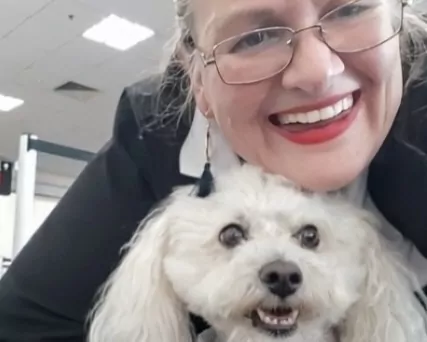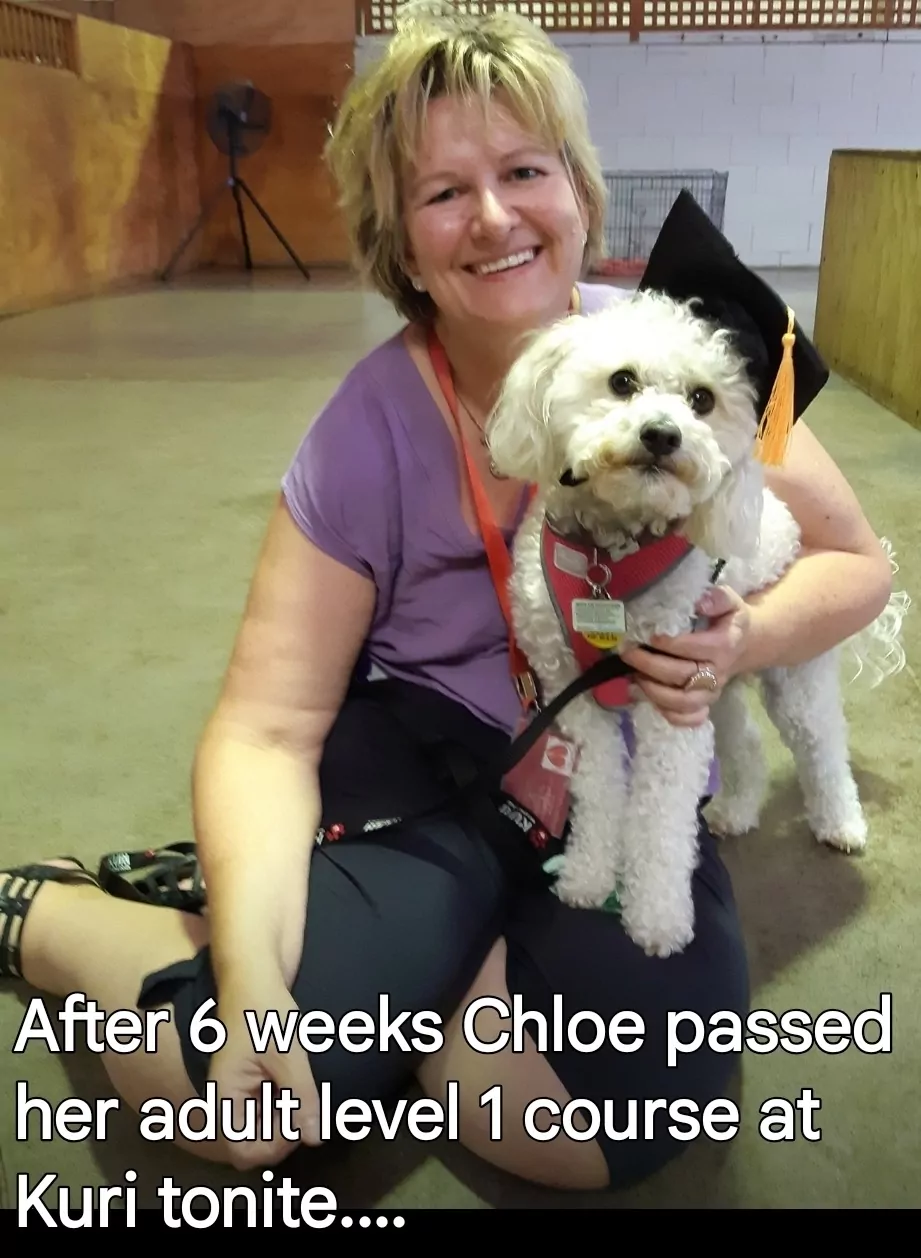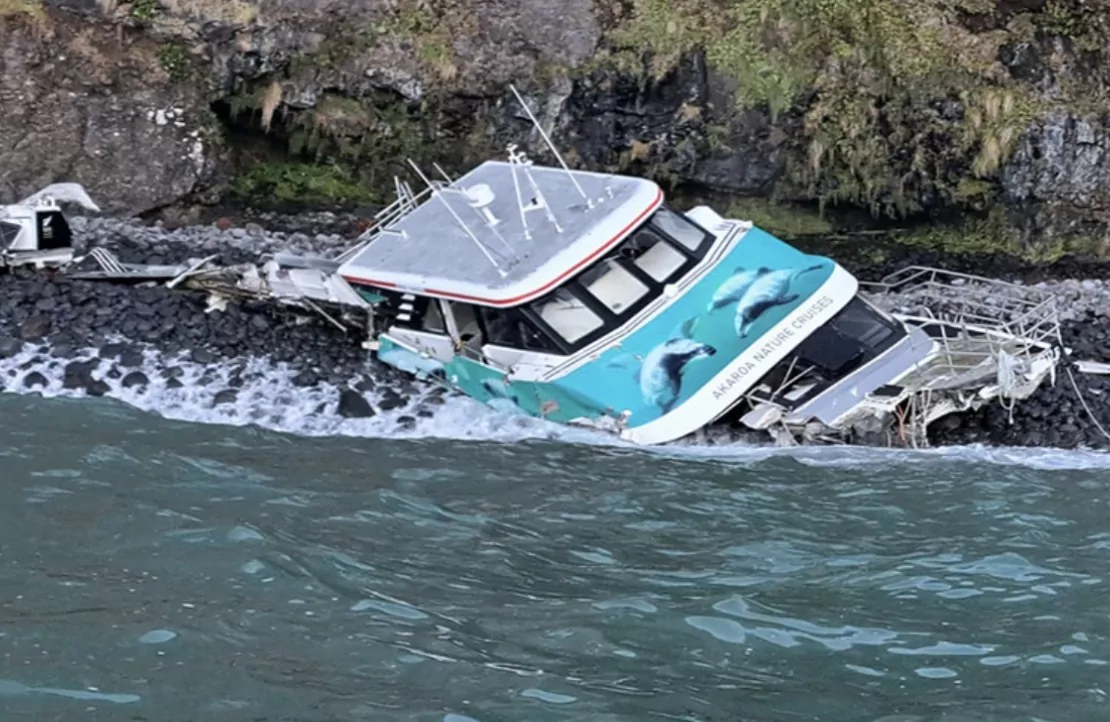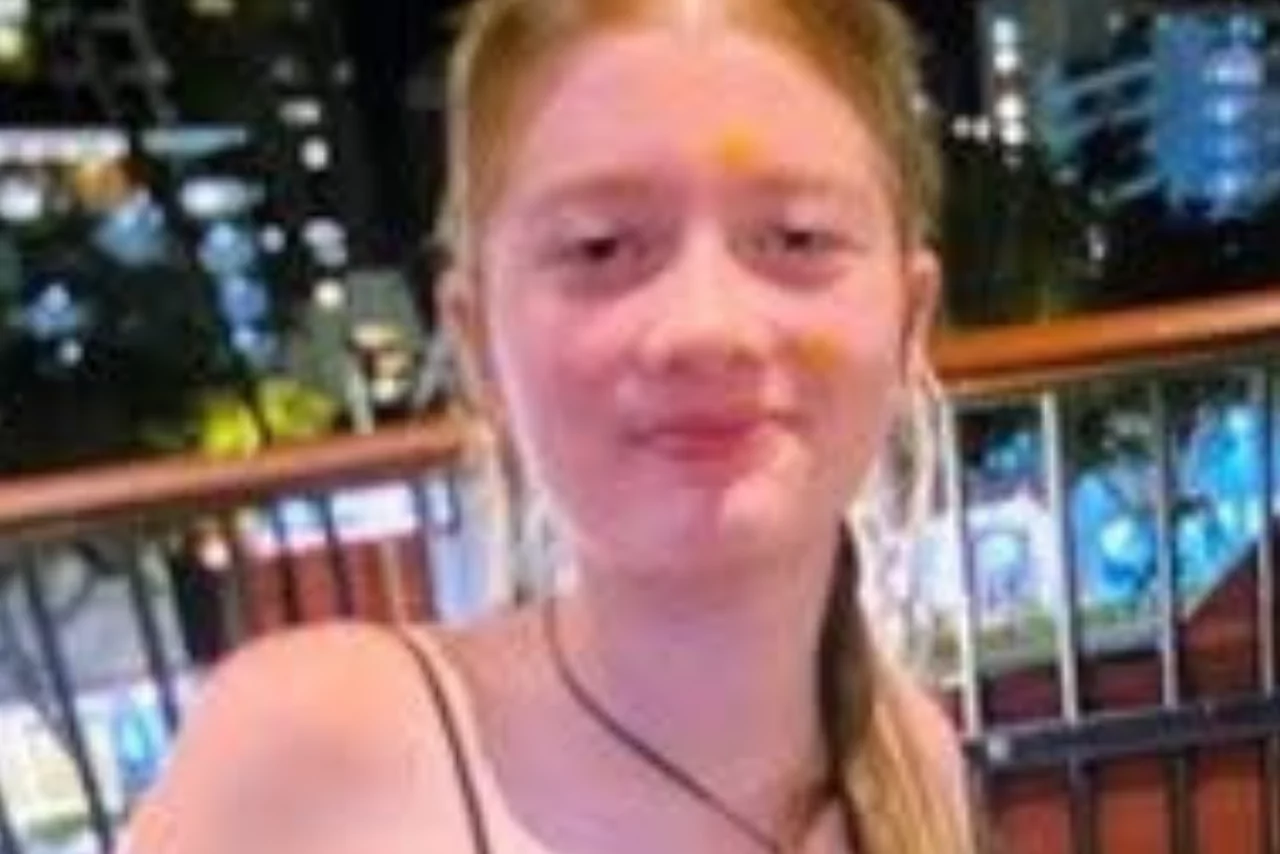Escaped youth tracked by Eagle helicopter, found hiding in New Brighton
The young person who escaped from a youth justice facility in Rolleston has been located...

Christchurch woman Vicki-Anne Parker says she has seen both sides of St John’s volunteer services, as a patient who relied on them during one of the hardest weeks of her life, and as a volunteer who has given back through the therapy dog programme.
Parker is speaking out after St John confirmed last week it’s axing a number of volunteer programmes.
In February 2024, Parker was admitted to Queenstown Lakes Hospital acutely unwell and alone for five nights.
“I had no family or friends to visit me. The first person to visit me in ED was a lovely woman in a black on white uniform that I recognised as a St John Community Team Volunteer. She was part of the Friends of Emergency Department. She held my hand as I cried because I had difficult veins to get IVs into,” Parker said.

“She and others in that team visited me daily on the ward, knowing I was alone and far from home. There was a possibility they might helicopter me to Invercargill and I was petrified, as my ex husband had nearly died being transferred from Queenstown to Invercargill Hospital. I could not have got through those days without the love and compassion of those wonderful women.”
Parker said she was concerned for the future of the volunteers themselves, many of whom were retired and relied on subsidised Southern Cross health insurance through St John.
“Now many are going to find themselves in a position where they can no longer afford this, which is really sad, especially for those who have given more than fifteen years of dedication to volunteering,” she said.
On the other side of the service, Parker has volunteered since 2020 with her therapy dog Chloe, after the Dog Therapy Programme launched in Christchurch.
“Chloe attended numerous one off roles as well as regular visits, while I balanced things with my own ill health and my charity NZ Gifts of Love and Strength. She brought lots of smiles to victims affected by trauma. Her greatest achievement was being the only dog to go to Christchurch Airport to figure out what would work for therapy dogs there, paving the way for the PAWS programme.”
This weekend Chloe is due to resit her certification, but Parker said there were not enough placements for all the roles and some volunteers were being asked to stand down.
“Our volunteer team leaders are working hard behind the scenes to find a successful outcome by 2026 for us and our dogs to continue what we are doing,” she said.
In the meantime, Parker and Chloe will continue visiting her elderly friend in a care home without wearing St John uniforms.
“I think it is sad that St John talks about looking after mental health, because these programmes ensure the best mental health outcomes not only for recipients, but also for those providing the services. For many volunteers, it is their chance to get out of the house, curb loneliness, and feel like they are contributing to society.”
Parker said she was worried about the impact on hospital patients, particularly during busy times when nurses were short staffed and volunteers provided comfort and practical help.
“It will be interesting to see what happens with the number of mental health calls or wellness checks to police when Caring Caller stops. Volunteering New Zealand has said the number of people regularly volunteering has dropped. Who will fill the void when these volunteers are no longer visiting clients weekly or making a cuppa in hospital”
What St John has said and how they responded
As first reported by Chris Lynch Media, St John announced last week, that it plans to remove a number of community based volunteer services including hospital volunteers, community carers and pet therapy programmes by June 2026.
The organisation said the move is to align with its new ten year strategy and is not about cutting costs.
Deputy Chief Executive Pete Loveridge said the organisation was focusing on ensuring the work it does has the greatest impact and is aligned with its strategic goal of helping people achieve better health and wellbeing outcomes.
He wouldn’t say what those outcomes were.
He said St John will work with volunteers over the next ten months to explore transferring these services to other organisations such as hospitals, rest homes or community groups.
Despite being invited to take part in an interview for this story, St John declined to appear and did not answer follow up questions.
Vicki-Anne Parker says she and Chloe remain grateful to St John for the support they have received both as a patient and as part of the therapy team, but it is still a sad day to see these essential services go.


